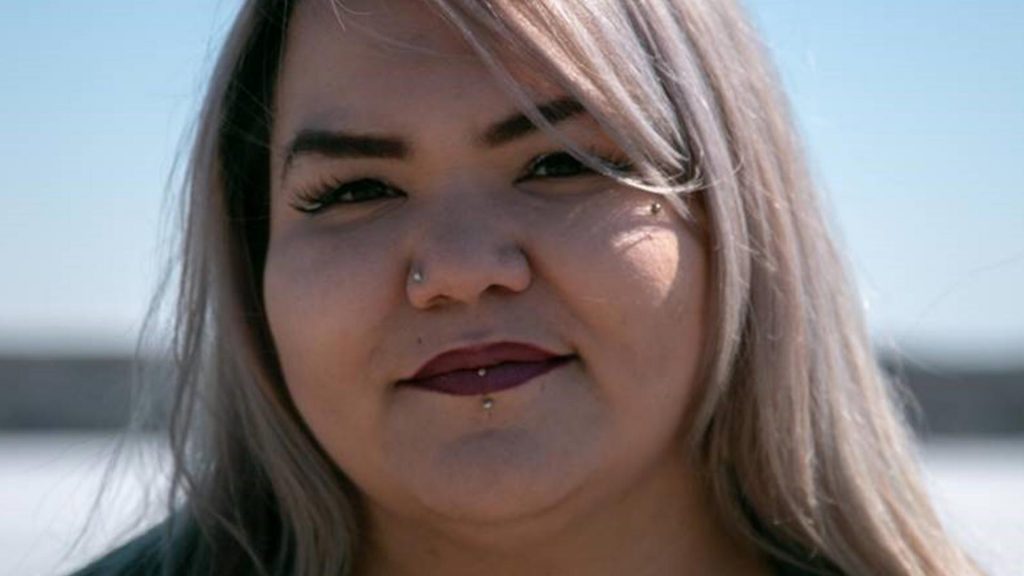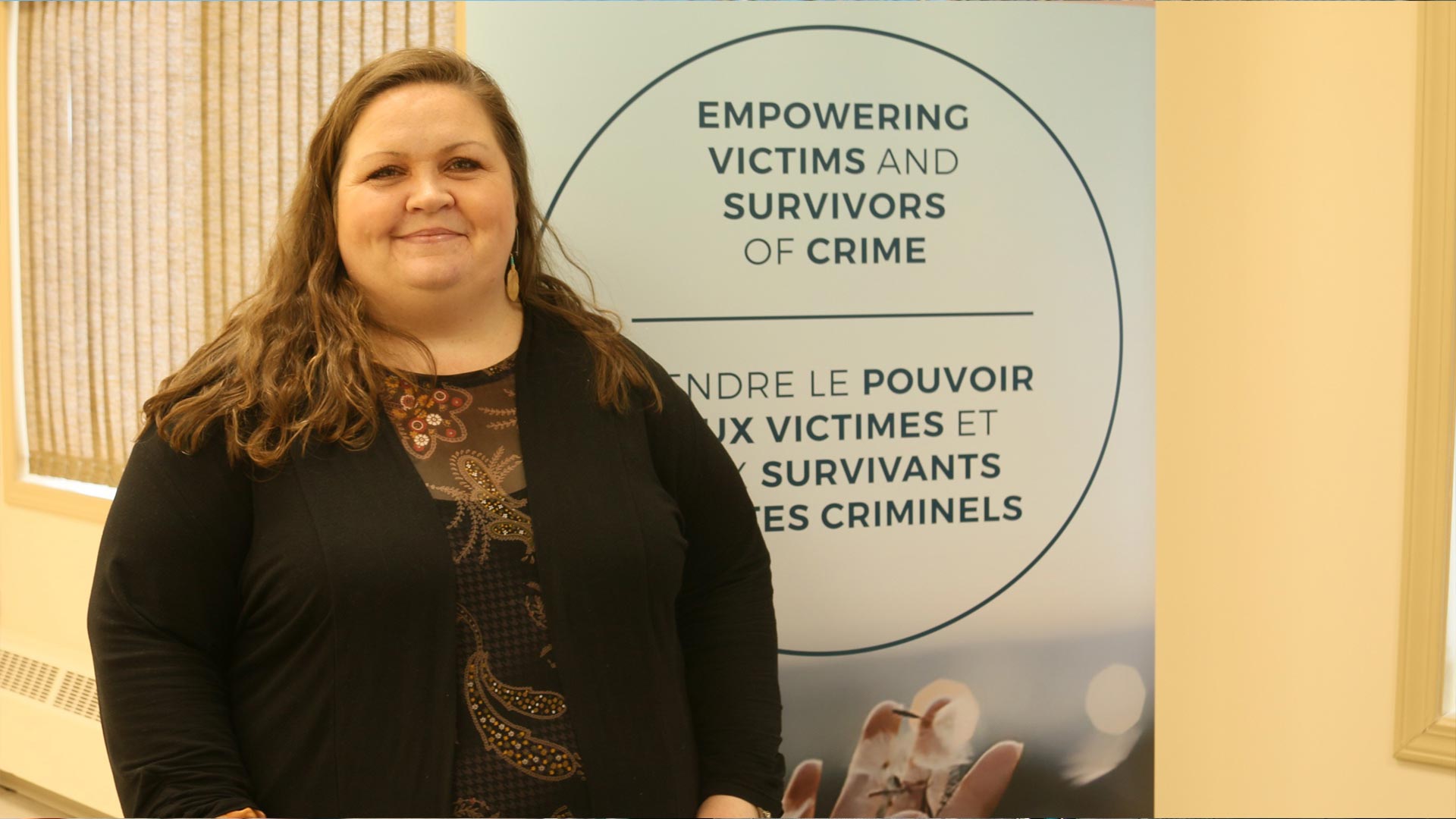
Jaylene Buggins has been meeting with the federal Ombudsman for Victims of Crime to try and bring about changes in the N.W.T.
Jaylene Buggins has experienced gaps in the territorial justice system first hand and has been on both sides of it; receiving punishment as a young offender and sharing her truth as a survivor of sexual violence.
Now she’s using her story to inform individuals who have the power to direct change at the federal level.
Buggins, 27, is Chipewyan and Cree from Hay River, N.W.T. and is a member of the first Indigenous Advisory Circle working with the Office of the Federal Ombudsman for Victims of Crime (OFOVC).
The federal agency based in Ottawa holds the federal government to account when it fails to meet its responsibilities for victims of crime.
This year, to support a reconciliation agenda, the OFOVC created the Indigenous advisory circle.
It’s made up of Indigenous victims and survivors of violence; along with experts working with Indigenous victims in the public and private sector.
“I met with Heidi (Heidi Illingworth, federal Ombudsman for Victims of Crime), in March and I got to talk to her a little more and actually share my story, the struggles I had growing up in and out of the justice system, with young offenders, constantly in trouble with the law and injustices I’ve even faced,” Buggins said.
Just before the COVID-19 pandemic hit, Illingworth made her first visit to the north this spring.
It was part of a cross-Canada town hall tour in an effort to connect and with victims of crime, listen to their needs and produce a report for federal Minister of Justice David Lametti.
“We had some really good meetings and a good group of criminal justice professionals and stakeholders who were passionate about what they are doing and then a public session, even though it was small we thought it was very powerful,” Illingworth told APTN News by phone on May 22.
For Buggins, she says the territories could test out new scenarios in an effort to deliver restorative justice.
“I think taking first steps of mediation and healing within a safe protocol. What that will look like would take a lot of trying new approaches, and may be a case by case basis,” she said.
“There’s over 268 Indigenous backgrounds across Canada with different beliefs and traditions.”
Restorative Justice
Since the Supreme Court of Canada’s 1999 decision that ruled on the importance of restorative, Indigenous offenders are able to ask for what is called a Gladue report.
It documents a person’s life history, including intergenerational trauma from the residential school system, and family history of abuse.
They’re written to encourage judges to take into account an Indigenous offenders unique life circumstances.
Despite being used in courts down south, there are no Gladue writers in the N.W.T.
Instead probation officers write a pre-sentence report.
Buggins is not convinced that these pre-sentence reports are aiding in restorative justice.
“You’re [the perpetrator] about to be punished you are crying; you know you did something wrong. But then you do it again and they say ‘released on your own recognizance’ and then you do it again and get a short sentence and are released. Finally, five or six times later you are given three years in jail,” she said.

Another big issue raised during the federal ombudsman’s town hall in the north dealt with sentencing.
Buggins said there are no penitentiaries in the north, so crimes that would normally carry a federal sentence in southern Canada end up being shortened so the convicted person can stay in the territory close to family.
It’s an issue Illingworth said needed to be addressed.
“There is hope that staying up here they can access cultural supports. That is an interesting and difficult challenge as well in this context as well. What do you do with the perpetrator and make sure you are addressing the most serious violent crime? Maybe we can divert some of the other crimes out of the justice system more effectively while prioritizing victim safety and wellness,” Illingworth said.
The ombudsman noted she’s heard from Canadian victims of crime that the justice system doesn’t address sexual violence in an appropriate way.
According to federal government data from a 2014 General Social Survey on Victimization and police-reported data from the Uniform Crime Reporting Survey, only five per cent of sexual assault survivors report the attack to the police and less than half of sexual assault cases in adult criminal court result in guilty verdict.
Buggings and Illingworth both agree on northerners low levels of confidence in the police, the court process and the territorial criminal justice system in general.
Moreover, resources North of 60 can be difficult to access.
“I have had to use relationships that I have built to navigate resources. I find you have to search high and wide for what is out there and you may still get the run around on the phone” Buggins said.
A lack of privacy and intimidation of victims in the north was voiced at the public hearings for the National Inquiry into Murdered and Missing Indigenous Women and Girls held in Yellowknife in 2018.
The ombudsman said she heard several times that residents in the territory also faced long wait times for mental health and healing services.
“Not enough staff, in some cases for victim services there is only the program coordinator and one worker so for the city of 20 thousand, that is a pretty big population and they have a lot of burden on them,” Illingworth said.
The ombudsman will meet with advocates such as Buggins and other members of the Indigenous Advisory Circle in July.










